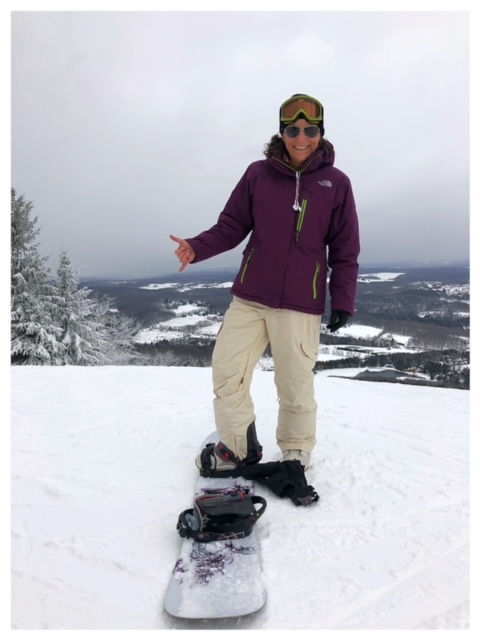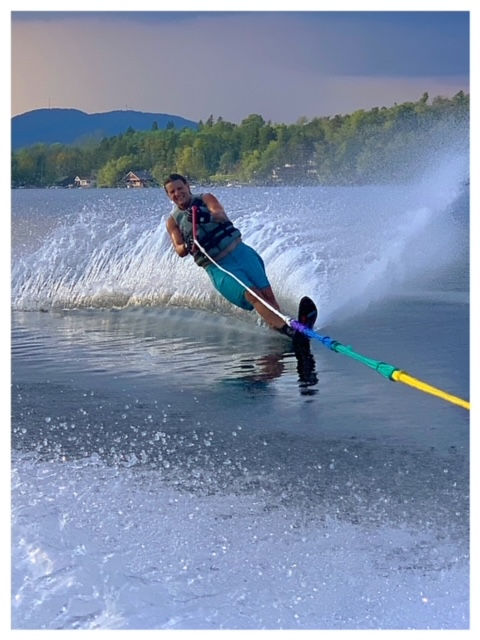Osteoarthritis and the Athlete Mindset After 40
- Joy Zazzera

- Aug 13, 2021
- 3 min read
Yoga teaches you to walk the line of discomfort while trying to maintain focus. Through yoga it is possible to quiet the mind, freeing it from outside distractions by bringing awareness to breath as a mind-management tool in regards to discomfort or intense sensations.
This way of coping translates really nicely across not only intense athletic training and situations but also to the adversities life sends your way, especially in the years after one's athletic prime when skills are less sharp and the symptoms of osteoarthritis begin to rear their head.

As a former competitively-driven athlete turned yogi who experienced early-onset arthritis beginning at age 36 I've experienced improved coping mechanisms and gained mental toughness I can directly associate to dedicated yoga and growth mindset practices done regularly. I've also experienced a time when I didn't trust yoga's more subtle work, during the years of osteoarthritis's onset in my joints, and consequently, felt disjointed, disconnected and in chronic pain beyond discomfort. What's worse is the mental blur that comes along with realizing your skills for enduring discomfort have either dulled or disappeared. In hindsight, I wish for earlier in life insight about the importance of athletic recovery practices, off-days, body awareness and meditation practices that are available to athletes today. I can only do my part now to be a voice and advocate for yoga's short and long term complementary and antidotal offerings to the increasingly intense training athletes do today.
Mental focus and mental endurance are not only intangibles for athletes in their prime but essential coping tools for dealing with the pain and discomfort of increasingly arthritic joints athletes are prone to experience hopefully far beyond their prime. The breathing practices of yoga (Pranayama) can teach the athletically-driven how to integrate the body, breath and mind to stay focused and calm even in the face of adversity, whether it's a rival opponent in a title match, dealing with your degenerating joint or rehabbing your joint replacement.
Although it may feel like it's coming from your joints, pain, particularly the chronic pain - known to not all, but many who suffer with osteoarthritis - is also an expression of one's state of mind. Dealing with chronic pain over time, particularly for someone who identifies as an athlete, can lead to feelings of depression, agitation, anxiousness and even helplessness. When your mood is lighter and more balanced, feelings of pain and discomfort can lessen in intensity.
Chronic pain and emotions are so intertwined that it's often hard to tell where one ends and the other begins. Multiple studies of OA show that people who experience more negative emotions also report more pain. Pain-related signals reach the brain through multiple pathways but pain is constructed in the brain. The way people interpret and cope with their emotions and with pain, drive the patterns created by the brain. Our level of fear of pain and the narrative we tell ourselves about our pain, can influence how our brain learns to deal with it across time. The brain's plasticity responds eagerly to retraining, re-patterning, and reframing which is ideal to help break down problematic and sometimes literally painful movement patterns due to OA.

Preparing for, enduring, recovering from and adjusting to two, individually occurring, total knee replacements before by my 41st birthday meant moving throughout my life would necessitate
some changes going forward. A few years past my second knee replacement rehab, my focus has turned to tuning into how my prosthetic joints are becoming acquainted with my pelvis and spine. And with the tools I've developed through yoga's teaching about managing sensation and doing the small things to keep my new joints functioning optimally, I've been able to keep my mind in realistic waters - knowing occasional discomfort will continue to be a part of my movement experience - but living confidently with the mindset that I am always in control of how I relate to the experiences in my body. I have my yoga practice to thank for that.







Comments